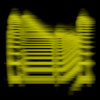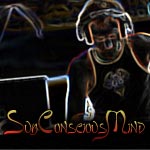| Author
|
USB or MIDI Keyboard
|
dudik
IsraTrance Junior Member

Started Topics :
14
Posts :
94
Posted : Sep 25, 2007 20:20
|
hi
is it good enugh to connect keyboard via usb
instead of midi connection?
there is a latency issues with usb to?
thnx!
        By thinking anxiously about the future, we forget the present, such that we live neither for the present or the future and we live as if we will never die, and we die as if we had never lived....." By thinking anxiously about the future, we forget the present, such that we live neither for the present or the future and we live as if we will never die, and we die as if we had never lived....."
Keep on diggin' ! |

|
|
Elad
Tsabeat/Sattel Battle

Started Topics :
158
Posts :
5306
Posted : Sep 25, 2007 21:05
|
|
Colin OOOD
Moderator

Started Topics :
95
Posts :
5380
Posted : Sep 25, 2007 21:48
|
|
knocz
Moderator

Started Topics :
40
Posts :
1151
Posted : Sep 25, 2007 22:39
|
I think midi is faster than USB (midi has 5 pins while usb has 2), but you probably will never see the difference between them
But there is a great advantage with usb: power. Most usb controllers are usb powered, so you just connect the keyboard to the pc and is ready to go.. Midi doesn't send power, so if you want to use a midi controller threw midi, you have to use batteries or an external power supply.
But most controllers have USB and MIDI connection,so you can experiment the same controller threw both connections.
(you can't use the controller threw midi and powered threw usb at the same time)
        Super Banana Sauce http://www.soundcloud.com/knocz Super Banana Sauce http://www.soundcloud.com/knocz |

|
|
AjmaGard
AjmaGard

Started Topics :
8
Posts :
122
Posted : Sep 26, 2007 19:40
|
|
texmex

Started Topics :
5
Posts :
189
Posted : Sep 26, 2007 20:14
|
Quote:
|
On 2007-09-25 21:48, Colin OOOD wrote:
Latency comes from the sound-generating part. MIDI itself has no appreciable latency. MIDI over a USB connection will be more reliable and accurate than MIDI over a MIDI cable.
|
|
Actually there is MIDI latency that is caused by the soundcard MIDI buffers and operating system buffers, and worst of all, there is MIDI jitter. Trying to sync software and hardware synths is just pain in an ass 
But yeah, MIDI over USB is the way to go. You got solid timing and most of the keyboards are also powered by USB. It's so much more practical. |

|
|
Colin OOOD
Moderator

Started Topics :
95
Posts :
5380
Posted : Sep 26, 2007 20:25
|
Quote:
|
On 2007-09-25 22:39, knocz wrote:
I think midi is faster than USB (midi has 5 pins while usb has 2), but you probably will never see the difference between them |
|
Sorry but this is totally wrong! The number of pins has nothing to do with the speed - half the pins on a MIDI plug aren't even used. Also USB has 4 pins. Both MIDI and USB are serial interfaces. The data transmission rates of both USB 1.1 (12Mb/s) and USB 2.0 (480Mb/s) are far higher than regular MIDI (31.25Kb/s)... and that's b for 'bits' not B for 'bytes'.
        Mastering - http://mastering.OOOD.net :: www.is.gd/mastering Mastering - http://mastering.OOOD.net :: www.is.gd/mastering
OOOD 5th album 'You Think You Are' - www.is.gd/tobuyoood :: www.OOOD.net
www.facebook.com/OOOD.music :: www.soundcloud.com/oood
Contact for bookings/mastering - colin@oood.net |

|
|
Colin OOOD
Moderator

Started Topics :
95
Posts :
5380
Posted : Sep 26, 2007 20:32
|
Quote:
|
On 2007-09-26 20:14, texmex wrote:
Quote:
|
On 2007-09-25 21:48, Colin OOOD wrote:
Latency comes from the sound-generating part. MIDI itself has no appreciable latency. MIDI over a USB connection will be more reliable and accurate than MIDI over a MIDI cable.
|
|
Actually there is MIDI latency that is caused by the soundcard MIDI buffers and operating system buffers, and worst of all, there is MIDI jitter. Trying to sync software and hardware synths is just pain in an ass  |
|
MIDI latency of this type is on the order of microseconds not milliseconds, due to the speeed at which MIDI buffers are polled by the CPU; they are miniscule compared to even the smallest latency achievable with your audio interface and are generally discounted as trivial. If there's a delay between pressing a key and hearing a noise, it's not due to MIDI itself (whether over a MIDI cable or a USB port) but to the processing needed to generate the sound. This is why it's so hard to play hardware and software synths in sync - playback will be a very different matter as most software will automatically compensate for the audio latency, and will let you enter a time manually to compensate for MIDI delay. This last time is generally entered as individual samples as this is the smallest time resolution provided by most software; however for exact compensation (and ignoring jitter) the time really needs to be expressed in units smaller than this.
        Mastering - http://mastering.OOOD.net :: www.is.gd/mastering Mastering - http://mastering.OOOD.net :: www.is.gd/mastering
OOOD 5th album 'You Think You Are' - www.is.gd/tobuyoood :: www.OOOD.net
www.facebook.com/OOOD.music :: www.soundcloud.com/oood
Contact for bookings/mastering - colin@oood.net |

|
|
knocz
Moderator

Started Topics :
40
Posts :
1151
Posted : Sep 27, 2007 01:31
|
Quote:
|
On 2007-09-26 20:25, Colin OOOD wrote:
The number of pins has nothing to do with the speed - half the pins on a MIDI plug aren't even used. Also USB has 4 pins. Both MIDI and USB are serial interfaces. The data transmission rates of both USB 1.1 (12Mb/s) and USB 2.0 (480Mb/s) are far higher than regular MIDI (31.25Kb/s)... and that's b for 'bits' not B for 'bytes'.
|
|
You have nothing to say sorry about! Even if Midi used all its pins, at that speed per pin you described, midi as a heck of a lot slower than USB.. So I think it's about time some one does something and improves midi connections and transfers... if we already have the capability of controlling low voltages at high clock speed, if they would make each pair of midi pins at the same speed as USB 2 pins, we could really archive almost zero latency..
Ah, USB has 4 pins but only 2 are for data transfer. the ones on the outside are the negative and positive power terminal, while the middle ones are for transmitting/receiving data (one transmits, the other one receives)
Unfortunately I had to know all the USB types and speeds last semester.. But now that I passed that class, I don't need to know that anymore. I know you were speaking in bits, because its silly speaking in Bytes while talking about serial data transfer. But I didn't learn the midi connector (or I probably skipped that class) so I instinctively assumed midi having more pins would be faster than USB.
We learn more every day.......
        Super Banana Sauce http://www.soundcloud.com/knocz Super Banana Sauce http://www.soundcloud.com/knocz |

|
|
brasirc
IsraTrance Junior Member

Started Topics :
10
Posts :
299
Posted : Sep 27, 2007 02:12
|
Quote:
|
On 2007-09-26 20:25, Colin OOOD wrote:
Quote:
|
On 2007-09-25 22:39, knocz wrote:
I think midi is faster than USB (midi has 5 pins while usb has 2), but you probably will never see the difference between them |
|
Sorry but this is totally wrong! The number of pins has nothing to do with the speed - half the pins on a MIDI plug aren't even used. Also USB has 4 pins. Both MIDI and USB are serial interfaces. The data transmission rates of both USB 1.1 (12Mb/s) and USB 2.0 (480Mb/s) are far higher than regular MIDI (31.25Kb/s)... and that's b for 'bits' not B for 'bytes'.
|
|
owned.
well, use the usb, if you start using alot more usb stuff, using up all ports, you can switch to MIDI-IN I guess, you prolly wont hear any noticeable difference.
        un-fucking-believable un-fucking-believable |

|
|
dudik
IsraTrance Junior Member

Started Topics :
14
Posts :
94
Posted : Sep 28, 2007 18:49
|
thnx ppl
for now i plugged the usb
it working nice... latancy is bearable
        By thinking anxiously about the future, we forget the present, such that we live neither for the present or the future and we live as if we will never die, and we die as if we had never lived....." By thinking anxiously about the future, we forget the present, such that we live neither for the present or the future and we live as if we will never die, and we die as if we had never lived....."
Keep on diggin' ! |

|
|
Colin OOOD
Moderator

Started Topics :
95
Posts :
5380
Posted : Sep 28, 2007 19:12
|
|
dudik
IsraTrance Junior Member

Started Topics :
14
Posts :
94
Posted : Sep 30, 2007 12:30
|
hi Colin
i got it now... 
buffersize is in the soundcard definitions
or in the program i use?
thnx!
        By thinking anxiously about the future, we forget the present, such that we live neither for the present or the future and we live as if we will never die, and we die as if we had never lived....." By thinking anxiously about the future, we forget the present, such that we live neither for the present or the future and we live as if we will never die, and we die as if we had never lived....."
Keep on diggin' ! |

|
|
knocz
Moderator

Started Topics :
40
Posts :
1151
Posted : Sep 30, 2007 13:05
|
If you use Asio driver for your sound card, the buffer size should be in your sound card definitions. If you don't use a Direct X driver (you should change to ASIO) the buffer is in the DAW definitions
        Super Banana Sauce http://www.soundcloud.com/knocz Super Banana Sauce http://www.soundcloud.com/knocz |

|
|
subconsciousmind
SCM

Started Topics :
37
Posts :
1033
Posted : Sep 30, 2007 13:53
|
|